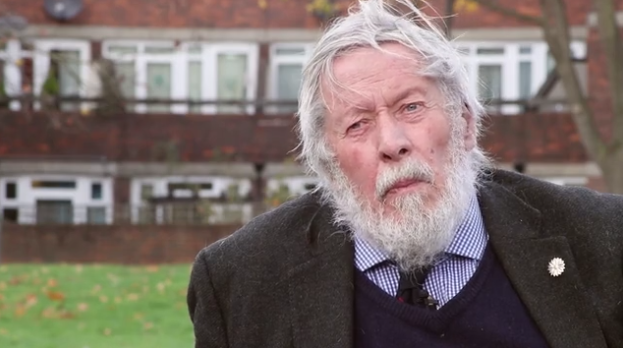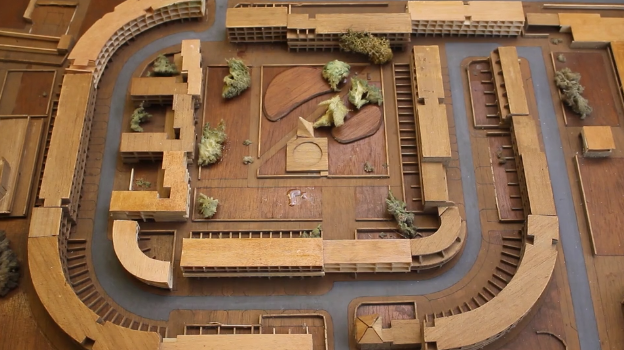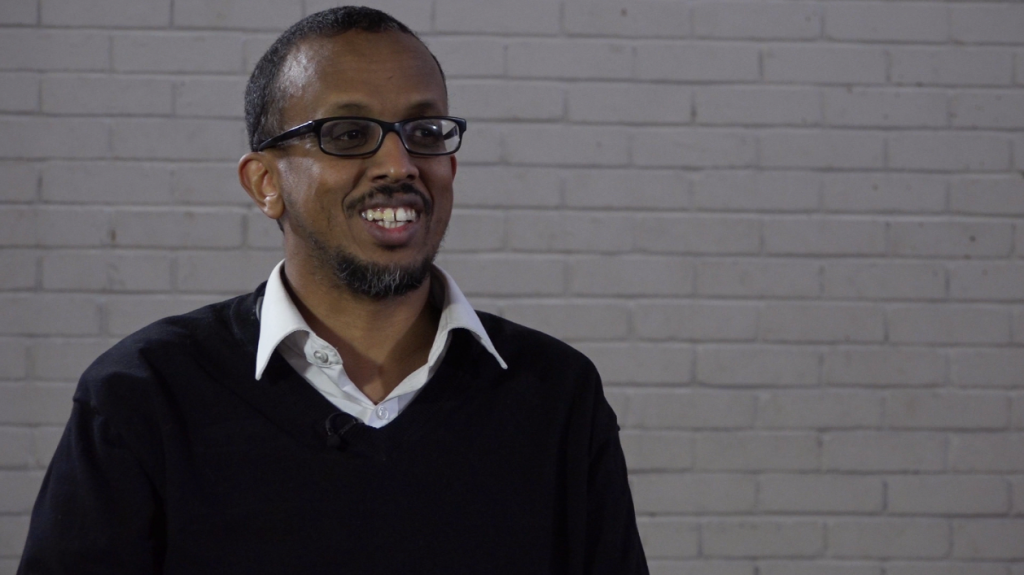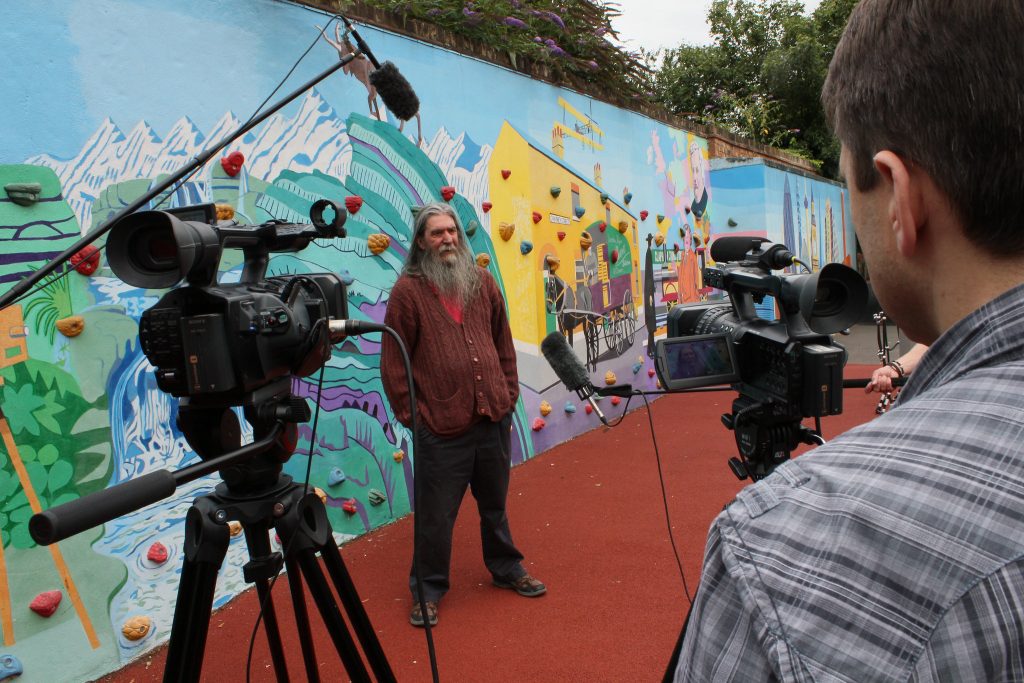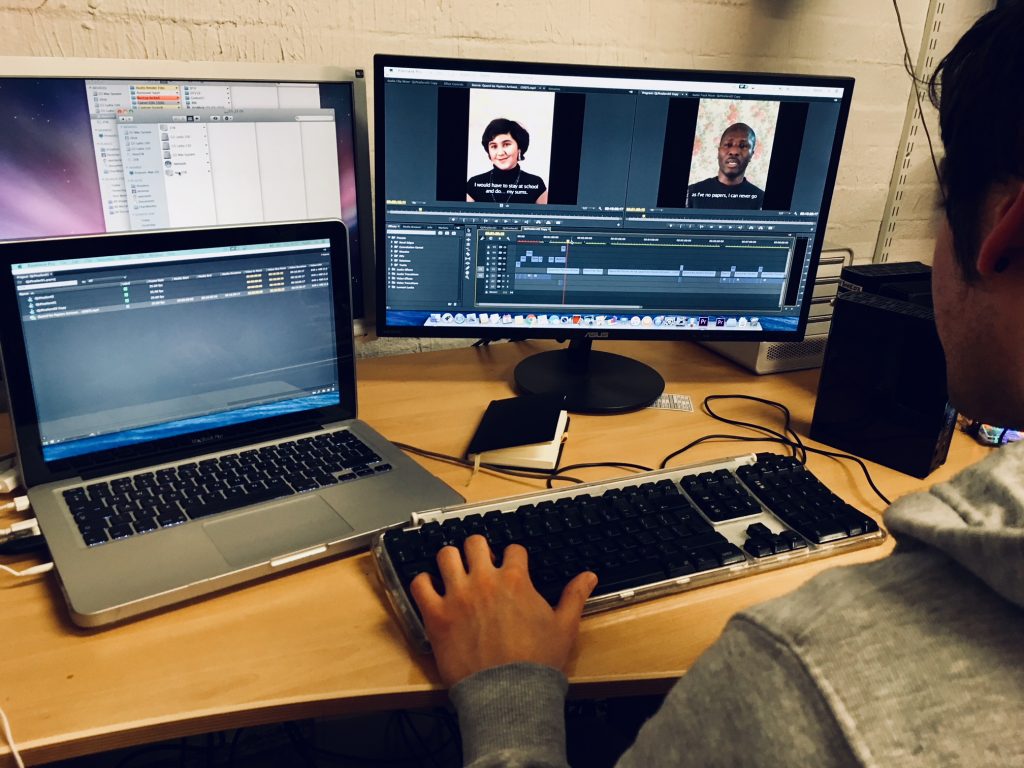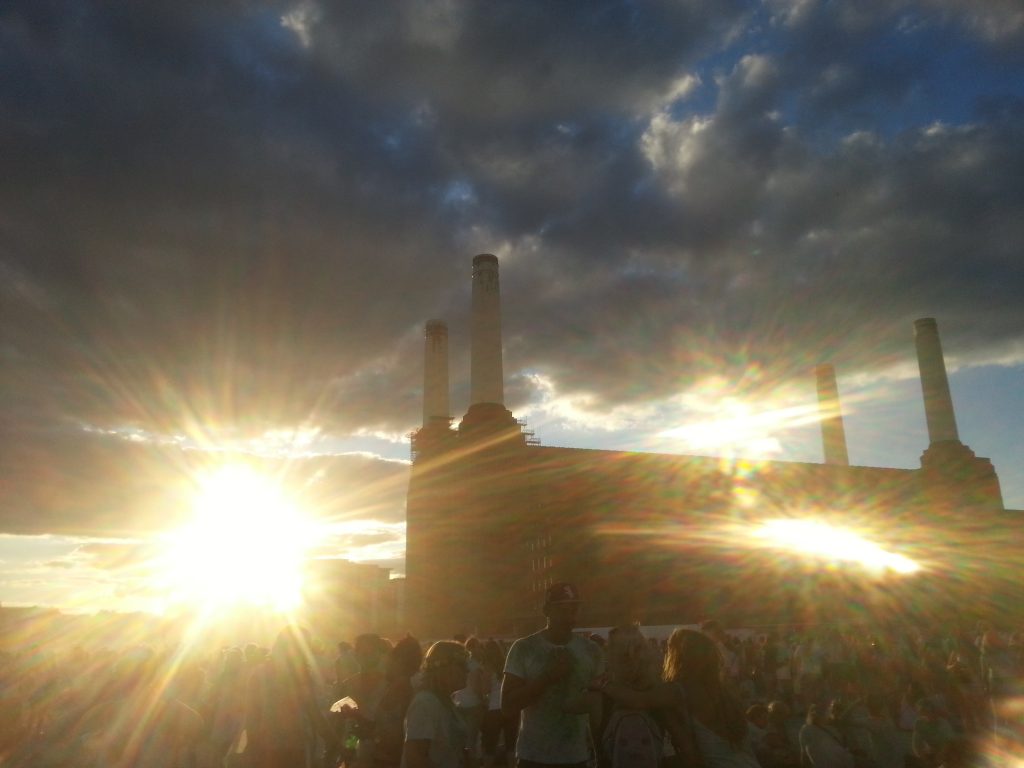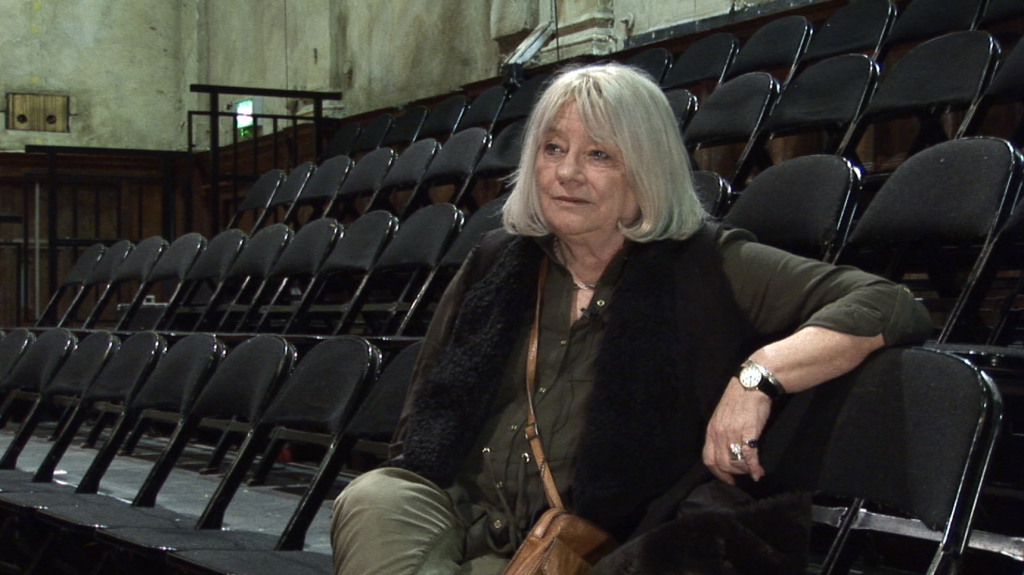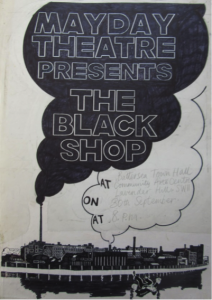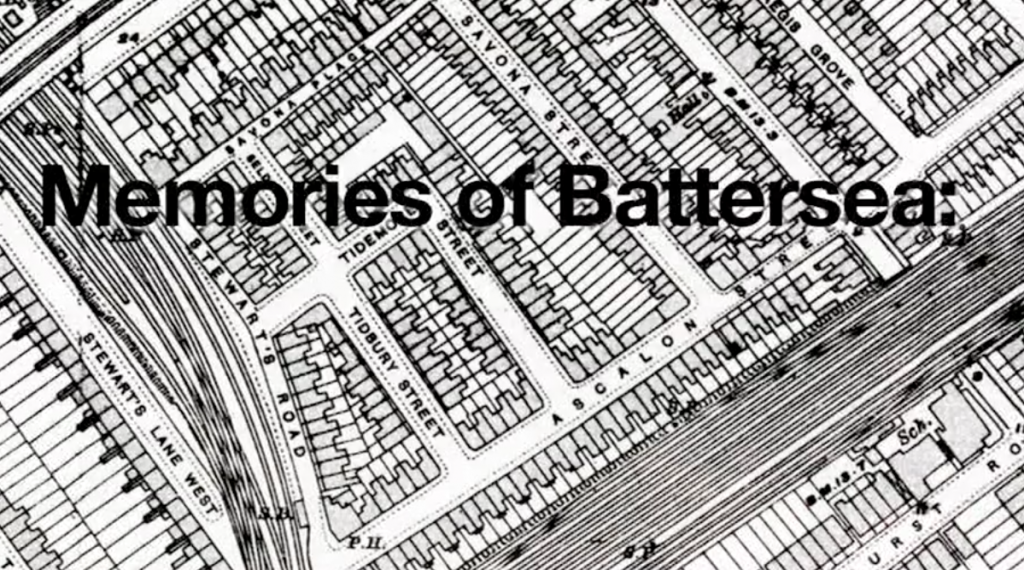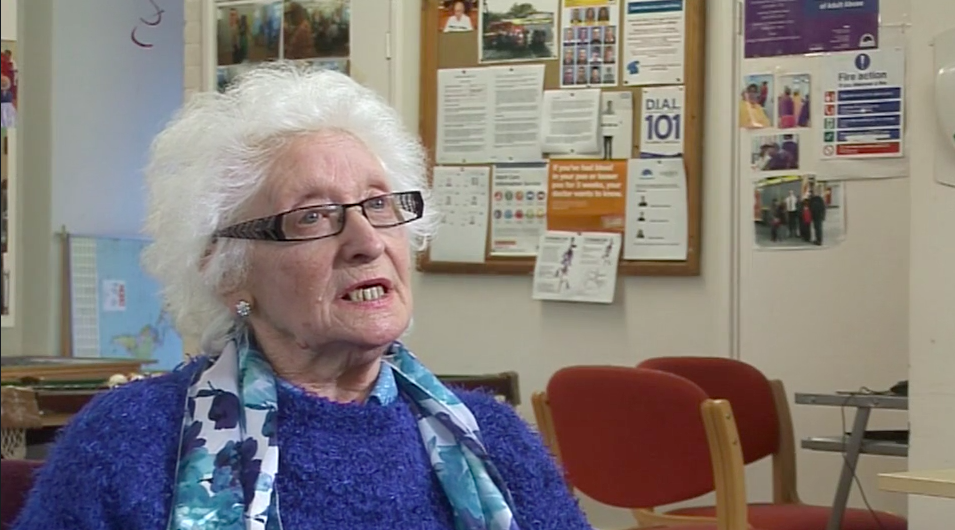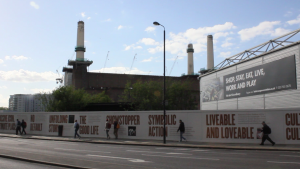Battersea Power Station, since the end of 2014, has been standing wounded with only three chimneys left, and we have not yet seen any sign that the Battersea Power Station Development Company is starting the rebuilding work on the SW chimney.

Battersea Power Station from Battersea Park Station. Image taken by Spectacle on 23/02/2015
Meanwhile, some of our worries about the social impact and the financial viability of the whole project have been shared by a number of different analysts.
For instance, our concerns about the financial viability of Big Bang Development grow stronger as main-stream financial newspapers, such as Bloomberg, have highlighted that after the positive performances of recent years, London’s house prices have now started going down. Bloomberg states, in a recent article, that “prices in emerging prime London fell 2 percent in the final quarter of 2014, according to Douglas & Gordon” and that “the area, which includes the Nine Elms neighborhood, was the worst performer in “emerging prime” London last year, broker Douglas & Gordon Ltd. said”. “Overseas demand for prime London homes is cooling, and some upscale projects being marketed “have gone over to Asia and probably haven’t done as well as they would have” in early 2014” quoting Jack Simmons, head of U.K. residential development and investment at broker Cushman & Wakefield Inc.
This alarming report, suggesting that the degrading value of houses might scare investors and threaten the financial plan of big projects such as the one by Battersea Power Station Development Company, was corroborated in an article by The Telegraph. The Telegraph reports that properties in the Nine Elms area are already flipped, thrown on the market to make some gains, before even a single brick of the flats has been put in place. This circumstance seem to confirm our impressions, sharing with The Telegraph’s journalist the “concern that homes built in the early phase of the huge project, were mainly reserved by investors – who have waited for the market to pick up before “flipping” them – and overseas buyers”. Instead of sounding an alarm in the heads of Battersea Power Station Development Company, the same article tells us that a spokeswoman for the company said: “We launched phase one at Battersea Power Station over two years ago and we are pleased to see that the early pioneer purchasers, who helped to get this project off the ground have experienced good levels of growth”.
If fluctuations of the property market could turn investors away, the new strength of British Sterling on the foreign exchange market could cause even more troubles to South Asian Buyers. The Star, one of the most popular Malaysian news sites, published a page explaining how to deal with loans in foreign currencies to prevent investments, such as a flat in Battersea Power Station, turning disastrous by weaker local currencies.
Rahim & Co consultant, marketing (London properties), Guy Major says “It is ‘dangerous’ to have a mismatch between your ability to pay based in ringgit and a pound-denominated loan,” he says.
If our concerns about the finances of the project are aimed at putting question marks over the narrative used by big bang developers to sell their projects, other media apparently started sharing our worries about the social impact of this monster development. The Guardian came out recently with a long and quite critical article about Battersea Power Station, “the biggest building site in London, and one of the largest regeneration projects in Europe”. Significantly titling the article “Battersea is part of a huge building project – but not for Londoners”, the Guardian highlights the tendency of new developments in London to get higher – “Hong Kongification” as Tony Travers, director of the Greater London group at the London School of Economics, puts it.
The Guardian quotes Ravi Govindia, the Conservative leader of Wandsworth council “Yes, some of the buildings will be tall, but there will be a distinctly London flavour. It’s going to be a place that people [will] enjoy living in.” Govindia says, adding that the project “will bring 25,000 permanent jobs plus 20,000 construction and engineering jobs during the building phase”), the article warns that building luxury flats for wealthy foreign buyers is exacerbating the housing problem for thousands of Londoners in need of homes.
On the other hand, Will Martindale, Labour MP candidate for Battersea, in a blog posted on The Huffington Post, shared his concerns (and some of his neighbor’s) about the way Battersea is changing: property prizes going well beyond local people’s budgets, riverfront views are blocked by multi-story buildings and very few new flats will eventually house locals while oversea investors and developers will make a fortune. As Will Martindale says “This is our riverfront. It’s part of our shared heritage, not simply a strip of real estate. We would do well to remember Battersea Council’s old motto: Not for you, not for me, but for us.”
At the moment, our impression is that it’s becoming ever more theirs…
Click Battersea Power Station for more blogs
See our Battersea Power Station project pages for more information and videos.
Or visit PlanA our general blog on urbanism, planning and architecture.
Spectacle homepage
Like Spectacle Documentaries on Facebook
Follow SpectacleMedia on Twitter
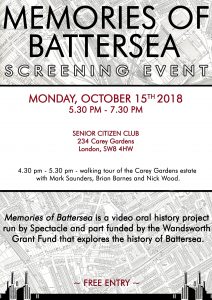 More info about the event can be also found here
More info about the event can be also found here
